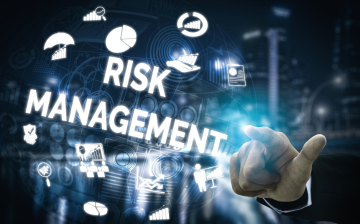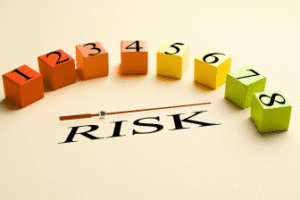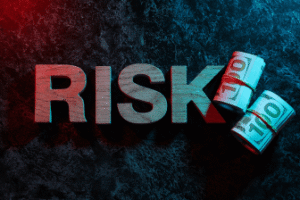
Risk Management Class for Finance Professionals
Risk Management Class for Finance Professionals
In a time when global market uncertainty is common, finance professionals can no longer depend only on traditional analytical and accounting skills.
The ability to identify, measure, and control risk has become central to financial decision-making.
More than 70% of corporate executives believe that geopolitical tensions and technological advancements have made financial and operational risks increasingly complex, according to the World Economic Forum’s Global Risks Report 2025.
A risk management class equips professionals with tools and frameworks to handle uncertainty effectively. It helps them make sound, data-driven decisions in complex financial situations.
This article explains why a risk management class is essential for finance professionals, what they can learn, and how the Global Risk Management Institute (GRMI) offers one of the best opportunities to study risk management.
Why Finance Professionals Need Risk Management Training
Today’s financial markets are highly interconnected. Global events, policy changes, and technological shifts constantly create volatility. Professionals in banking, investment, or corporate finance must understand credit risk, market movements, and regulatory requirements.
The International Monetary Fund (IMF) has noted that poor risk management practices were a key factor in over 60% of financial institution failures in the last decade.
Thus, a structured risk management course helps professionals identify threats and create strategies to minimise them before they affect business goals. It also builds a deep understanding of how to measure, diversify, and manage risk.
Risk management education changes how finance professionals view uncertainty and approach financial decisions in an evolving business world.
What a Risk Management Class Covers
A complete risk management class provides practical insights into evaluating and managing operational, financial, and strategic risks.
The curriculum usually includes:
- Understanding Risk: Exploring the types, causes, and measurement of risk.
- Financial Risk Management: Managing exposure to credit, market, and liquidity risks.
- Operational and Strategic Risk: Recognising risk appetite and day-to-day operational challenges.
- Governance and Regulation: Adapting to regulatory changes and compliance standards.
- Quantitative Methods: Applying statistical tools and data to analyse risk exposure.
- Crisis Management: Building response strategies for disruptions and ensuring business continuity.
Case Study- The 2008 Global financial crisis is one of the most striking examples of why risk management education is essential. It occurred because many financial institutions underestimated credit and liquidity risks, resulting in severe global losses. A well-designed risk management diploma teaches how to identify early warning signs of such vulnerabilities through stress testing, scenario analysis, and portfolio diversification. When applied correctly, these tools help ensure long-term business stability and prevent similar large-scale financial disruptions.
These classes focus on applied learning through case studies, simulations, and real-world projects rather than theory alone.
Benefits of Taking a Risk Management Course
The advantages extend well beyond the classroom. A risk management class helps professionals align their skills with the needs of modern businesses and prepare for future challenges.
Key benefits include:
- Improved strategic decision-making under uncertainty.
- Better understanding of how risk affects market behaviour and pricing.
- Greater awareness of global compliance and governance frameworks.
- Broader career options in banks, consultancies, and financial firms.
Professionals who complete risk management certifications or diplomas often earn higher salaries due to their specialised expertise.
Choosing the Right Institute for Risk Management
Selecting the right institution is essential because many programmes have similar names. The Global Risk Management Institute (GRMI) is among India’s leading institutes for risk education.
GRMI’s courses are designed for finance and risk professionals aiming to advance their careers. The curriculum focuses on case-based learning, industry exposure, and practical applications to build both conceptual and operational expertise.
GRMI’s Post Graduate Diploma in Risk Management (PGDRM): A Transformative Learning Journey
Among the top risk management programmes in India, GRMI’s Post Graduate Diploma in Risk Management (PGDRM) offers a one-year, career-focused course for graduates and working professionals who wish to upskill.
Key features of GRMI’s PGDRM course:
- Comprehensive Curriculum: Covers financial, operational, and enterprise risk management.
- Industry-Relevant Design: Developed with inputs from senior risk professionals.
- Hands-on Projects: Includes real corporate assignments to apply classroom learning.
- Experienced Faculty: Taught by global practitioners and senior executives.
- Career Support: Provides personalised guidance and placement opportunities with top finance companies.
The PGDRM programme builds leadership capacity and practical skills in risk management. Unlike most diploma courses, it integrates governance, analytics, and strategy for decision-making across organisational levels.
Graduates can explore roles such as Risk Analyst, Credit Risk Manager, Compliance Officer, or Enterprise Risk Consultant.
The Growing Importance of Risk Management in Finance
Every financial decision carries a degree of uncertainty. Effective risk management helps professionals anticipate problems, assess their financial impact, and implement preventive actions.
As digitalisation and globalisation expand, new risks—cyber, regulatory, and market—emerge rapidly. Understanding these risks is now essential for every finance professional.
Why Choose GRMI for Risk Management Education
The Global Risk Management Institute (GRMI) is recognised as one of India’s most trusted names in risk management education. It consistently produces leaders who excel in the evolving world of finance and risk.
GRMI’s future-focused approach combines analytical, strategic, and leadership training. The PGDRM course blends theory with practical experience, preparing finance professionals for high-growth, real-world risk management roles.
Conclusion: Future-Proof Your Finance Career with Risk Management
Taking a risk management course is more than an academic step—it’s a strategic investment in your professional growth.
Mastering risk strengthens your ability to make informed decisions in unpredictable markets. Choosing GRMI’s PGDRM course ensures world-class learning, mentorship, and placement support.
Whether you aim to rise in your current organisation or transition into risk management, GRMI gives you the tools to succeed.
By 2025 and beyond, risk management will define the finance profession — and GRMI is where that future begins.
FAQ’s
Q1: Why should risk management be taught to financial professionals?
Ans: Professionals may anticipate financial difficulties and make more informed, data-driven company decisions with the aid of risk management.
Q2: What subjects are covered in a course on risk management?
Ans: In addition to governance, analytics, as well as crisis management, classes address market, credit, along with operational risks.
Q3: Is it appropriate for a beginner to take a risk management course?
Ans: Yes, it is the best option for recent graduates as well as working professionals who want to pursue careers in consulting and finance.
Q4: How long is the PGDRM course offered by GRMI?
Ans: The one-year PGDRM programme at GRMI provides exposure to risk management both theoretically and practically.
Q5: What distinguishes GRMI from other establishments?
Ans: Real corporate projects, Globally recognised professors, industry-focused education, and robust placement assistance are all combined at GRMI.
For any queries please fill the form
You may also like

Which careers are truly safe from layoffs in 2026?

What Are the 3 Types of Credit Risk?


